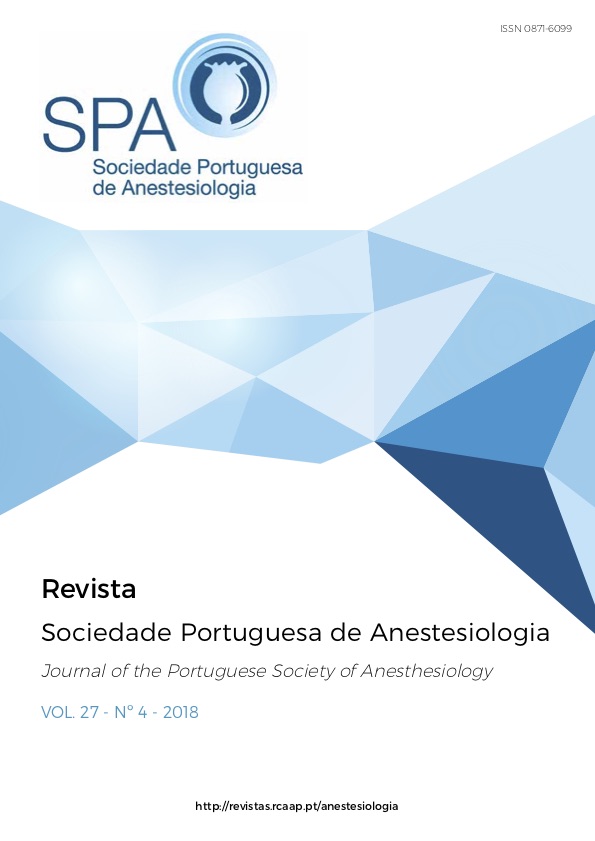Ketamine in Pediatric Neuropathic Pain
DOI:
https://doi.org/10.25751/rspa.15110Abstract
Objective: The objective of this work is to review the literature on the role of ketamine as an analgesic in the treatment of pediatric neuropathic pain.
Material and Methods: A narrative review of the literature was performed using the descriptors pain, neuropathic, pediatric, children and ketamine. The research was carried out in the PubMed database. There were identified 184 articles on pediatric neuropathic pain, but only 3 about the administration of ketamine in this context. Given the small number of entries related to the use of ketamine in pediatric neuropathic pain, we also included works cited in the publications initially identified, so a systematic review was unfeasable.
Results and Discussion: Ketamine is a dissociative anesthetic with multiple mechanisms of action, which has a remarkable benefit in cases of unmanageable pain, particularly cases of neuropathic pain. Subanesthetic (analgesic) doses might be administered with a high safety profile and few adverse effects. In children with unmanageable neuropathic pain, NMDA receptor antagonist drugs such as ketamine have been shown to improve analgesia and reverse tolerance and hyperalgesia induced by high doses of opioids. Most reports of the use of ketamine in the pediatric population refer to cases of intractable neuropathic pain associated with terminal cancer disease.
Conclusion: Although the evidence is limited there seems to be support for the administration of ketamine at analgesic doses in the treatment of pediatric neuropathic pain.
Downloads
Downloads
Published
How to Cite
Issue
Section
License
Articles are freely available to be read, downloaded and shared from the time of publication.
The RSPA reserves the right to commercialize the article as an integral part of the journal (in the preparation of reprints, for example). The author should accompany the submission letter with a declaration of copyright transfer for commercial purposes.
Articles are published under the terms of the Creative Commons Attribution Non-Commercial License (CC BY-NC).
After publication in RSPA, authors are allowed to make their articles available in repositories of their home institutions, as long as they always mention where they were published.


